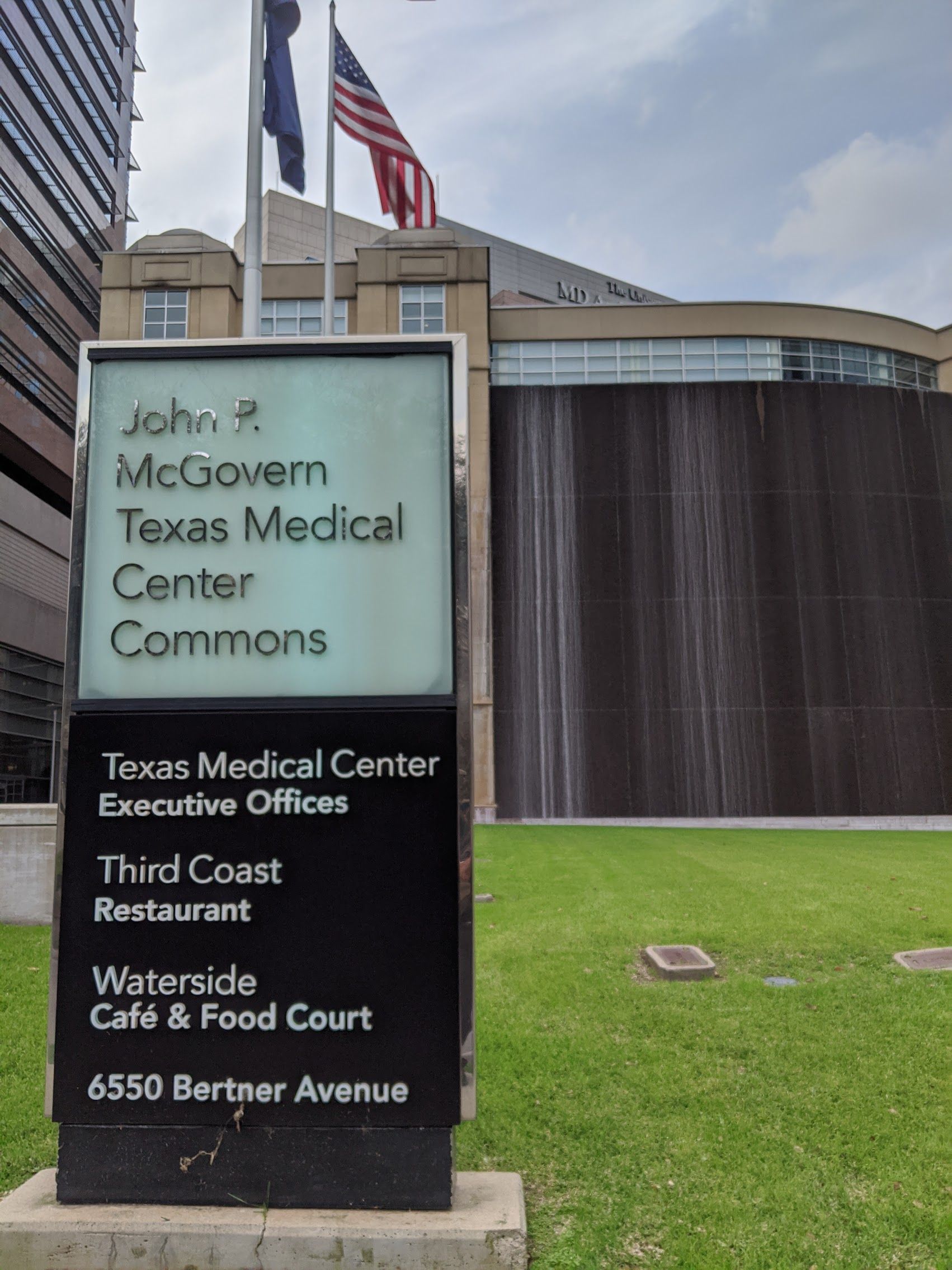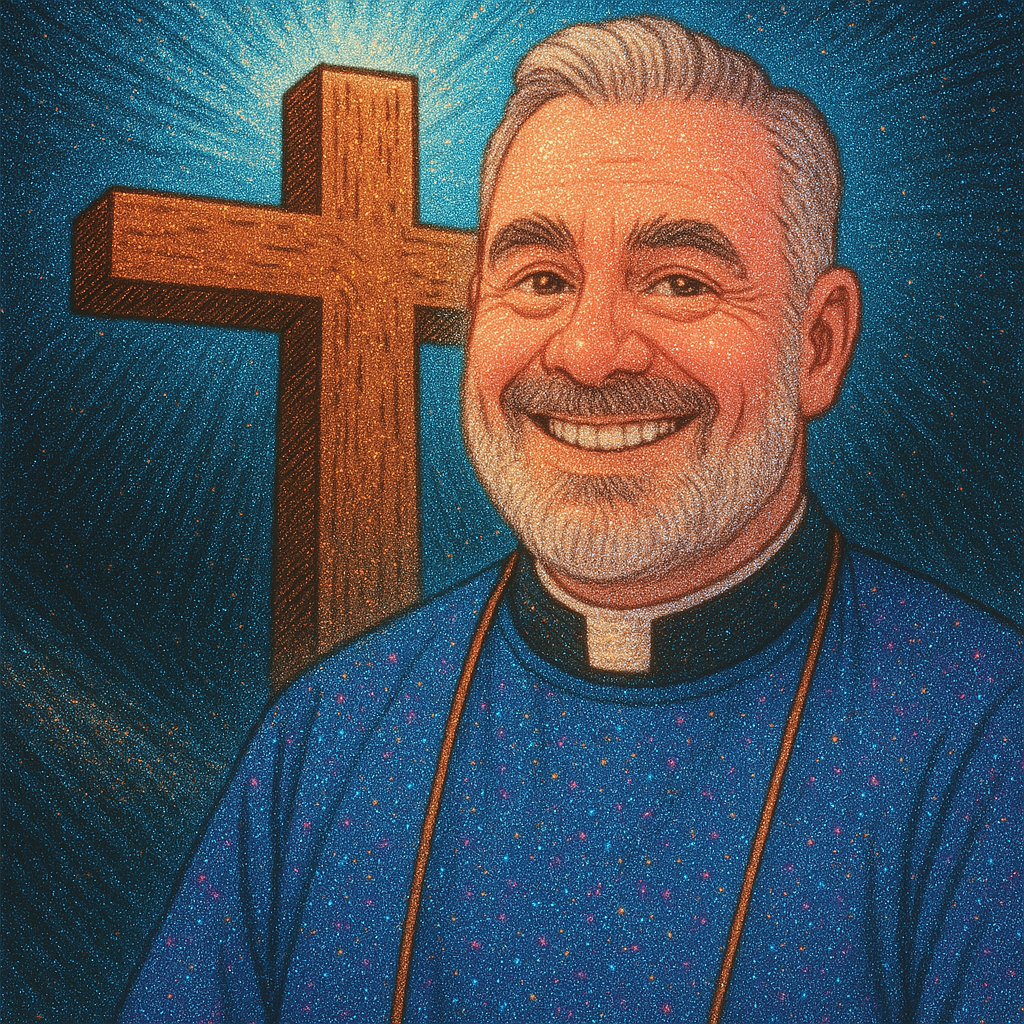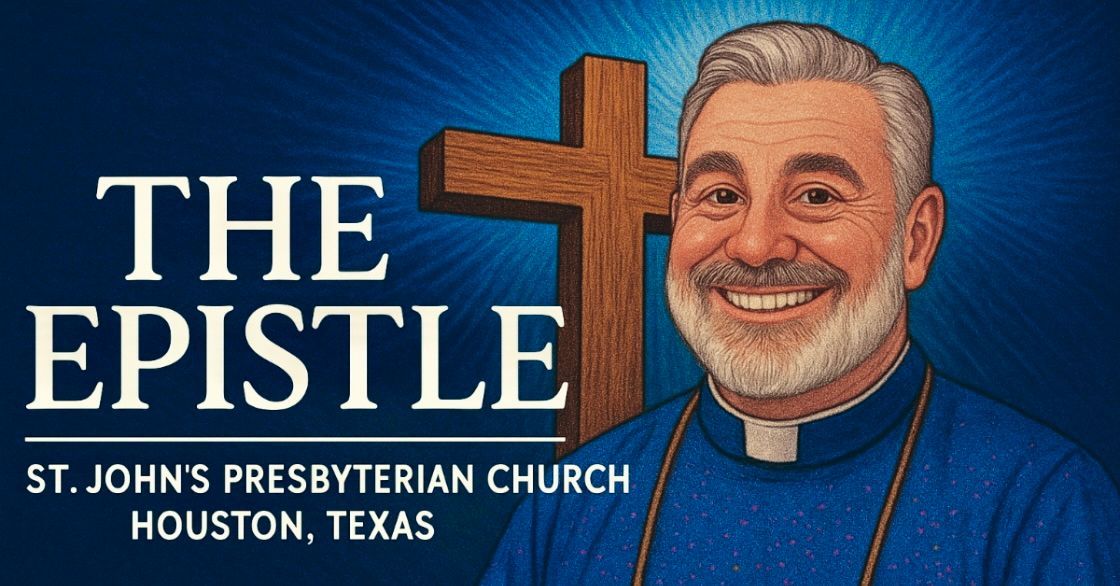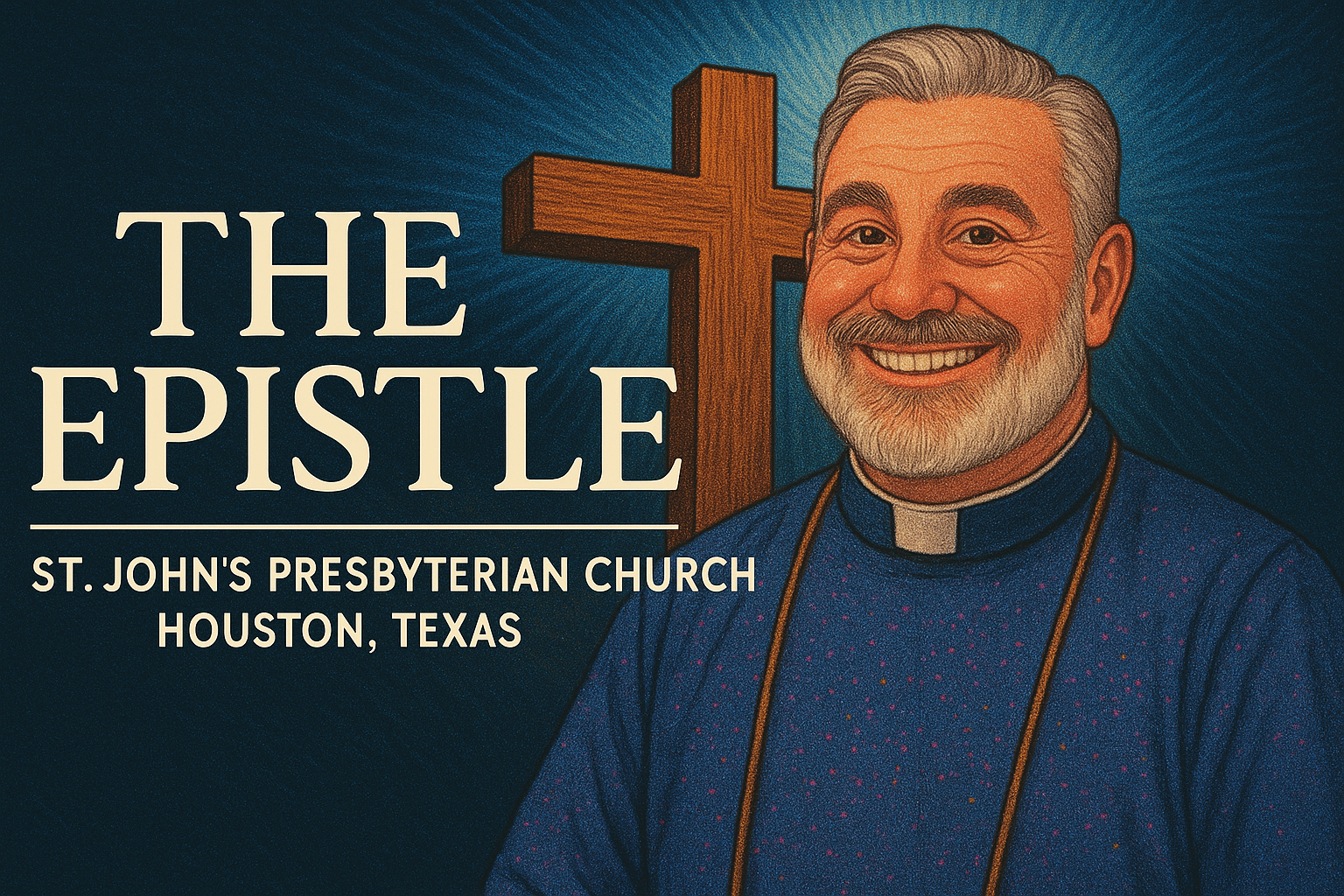Healing Prayer Houston: A Church Serving the Texas Medical Center Community
When you work in healthcare in Houston, you carry people's pain home with you. The nurse finishing a 12-hour shift at MD Anderson. The physical therapist helping stroke patients relearn how to walk. The doctor breaking bad news to yet another family. The hospital chaplain sitting with someone taking their last breaths.
These aren't abstract concepts at St. John's Presbyterian Church. They're the daily realities of our members who work in and around the Texas Medical Center.
Every Sunday at 11:00 AM, we gather for worship that makes space for this kind of exhaustion, this particular burden of caring for the sick and dying. Our prayers don't shy away from the weight that healthcare workers carry. We name it out loud.
Prayer That Understands the Medical Reality
Presbyterian worship includes something called "prayers of the people." Each week, we lift up the specific concerns of our congregation and our city. And each week, those prayers include healthcare workers.
We pray for nurses working double shifts. We pray for families making impossible medical decisions. We pray for patients traveling to Houston from across the country, desperate for treatment only available here. We pray for doctors facing ethical dilemmas that don't have clean answers.
This isn't generic "bless all the sick people" praying. We pray by name. We pray specifically. Because when you're part of a church small enough that people actually know each other, prayer becomes personal.
Last month, we prayed for a member's daughter going through her first week of nursing school clinical rotations. The week before, we prayed for another member recovering from surgery, lifted up by name by the very nurses and therapists who understand exactly what that recovery journey looks like.
This is prayer rooted in reality, not religious platitudes.
The Anchor House Ministry Connection
St. John's Presbyterian Church in the past was active with something called Anchor House. We provide low-cost housing to long-term medical patients from outside the Houston area.
Think about what that means. When you're facing cancer treatment that requires weeks or months in Houston, you need more than just medical care. You need a place to stay that won't bankrupt you. You need to be close to the hospital but not sleeping in your car. You need people who understand that being sick away from home is lonely and terrifying.
Anchor House provides that stability. We chose the name deliberately, because St. John's wanted the apartment to be a true home away from home.
The Medical Center draws patients from across Texas, across the country, and around the world. They come here because Houston offers some of the best medical care available anywhere. But excellence in medical treatment doesn't address the practical crisis of where to live during treatment.
That's where the church steps in. Our members include medical professionals who understand these gaps in care. They know that healing requires more than just clinical excellence. It requires community, stability, and people who show up.
When Church Members Understand Medical Crisis
Here's what makes St. John's different from churches that just say they'll pray for you. We have members who actually understand what you're facing medically.
When someone in our congregation gets diagnosed with cancer, they're surrounded by people who've worked in oncology. When someone faces surgery, nurses in the pews know which questions to ask doctors. When someone needs physical therapy, our members who work in rehabilitation can recommend the best facilities and therapists in Houston.
This kind of practical knowledge matters as much as prayer. Maybe more, if we're being honest.
I think of Grace, a widow in our congregation who lost her husband to aggressive cancer. She came to worship angry at God, arms crossed, sitting alone in the back. Our prayers of confession gave her permission to name that anger instead of pretending everything was fine.
Months later, she started quilting prayer shawls for chemo patients at MD Anderson. Worship healed her wounds, then pushed her toward others still hurting. She understands now what cancer families need because she's lived it.
That's the kind of healing that happens when church isn't just Sunday morning performance but actual community.
The Prayers We Actually Pray
Let me be specific about what prayer looks like at St. John's.
During worship, I invite people to share prayer concerns out loud. Someone might say, "My sister is having surgery at Methodist on Tuesday." Another person adds, "My coworker just got diagnosed with MS and doesn't know what to do." Someone else mentions a friend starting chemotherapy.
We don't rush past these requests. We don't collect them on cards to pray over privately later. We pray right then, out loud, with the whole congregation listening and responding.
Our pastoral prayer weaves together all these individual concerns. I name Houston's specific medical realities: the traffic getting to appointments, the insurance battles, the language barriers, the loneliness of being sick in a huge city, the particular exhaustion of healthcare workers in the largest medical complex in the world.
Then we pray the Lord's Prayer together. All of us, from the retired surgeon to the teenager whose parent works at Texas Children's Hospital to the single mom whose kid needs physical therapy. One prayer, one community, acknowledging we all need healing in different ways.
This is prayer as community practice, not religious performance.
Healthcare Workers Finding Rest
If you work in healthcare, you know the statistics. Nurse burnout is epidemic. Physician suicide rates are climbing. The emotional toll of caring for dying patients doesn't show up in medical school curriculum.
St. John's offers something healthcare workers desperately need: a place where you can stop performing.
You don't have to be the strong one here. You don't have to have all the answers. You can admit you're tired, frustrated, angry at diseases you can't cure and systems that don't work and people who die despite your best efforts.
Our worship creates space for lament. Presbyterian tradition understands that faith includes doubt, anger, and exhaustion. The Psalms are full of people yelling at God about suffering. We don't pretend everything's fine when it clearly isn't.
For healthcare workers used to maintaining professional composure through crisis after crisis, this permission to be honest about struggle offers genuine relief.
Mission That Connects Faith and Healing
St. John's mission statement says we exist to glorify God by making disciples and meeting human needs. That second part, meeting human needs, drives everything we do.
We operate a community garden that provides fresh vegetables to food pantries serving hundreds of families weekly. We partner with Presbyterian Children's Homes and Services to help single-parent families on the verge of homelessness. We support kids in Uganda who have no one else.
But healing ministry happens in quieter ways too. Members visit people in the hospital, not as official chaplains but as friends who remember you're more than your diagnosis. People coordinate meals for families dealing with medical crisis. Someone drives an elderly member to appointments when family can't.
This isn't organized through programs with sign-up sheets. It's what naturally happens when people actually care about each other.
Healthcare professionals in our congregation appreciate this approach. They see the gap between excellent medical care and the personal support that actually helps people heal. They know that someone showing up with dinner matters as much as the right medication.
The Reality of Small Church Community
I need to be honest about what St. John's isn't. We're not a megachurch with specialized ministries for every demographic. We don't have a healing prayer service separate from regular worship. We don't have a medical missions team or healthcare professionals fellowship group.
What we have is simpler and more fundamental. We have a church small enough that when you share a prayer request on Sunday, people remember it on Wednesday. When you're facing surgery, actual humans show up. When you work in healthcare and you're drowning, people notice and offer help.
Our congregation includes nurses, physical therapists, hospital staff, and probably doctors, though healthcare professionals don't usually announce their credentials when they join. They're just members of the body, using their particular gifts to serve the community.
During coffee hour after worship, you'll overhear conversations about the challenges facing Houston's hospitals. Someone mentions nursing school struggles. Another person asks for advice about finding a good physical therapist for their aging parent. These aren't formal ministry programs. They're what happens when healthcare workers worship alongside people who need healthcare.
Worship That Acknowledges Medical Limits
Here's something we do differently at St. John's. We don't promise God will heal you if you just pray hard enough. We don't suggest faith will cure cancer or that positive thinking can overcome chronic illness.
We pray for healing, yes. But we also pray for doctors' wisdom, for families' strength, for peace in suffering, and sometimes for a gentle death when cure isn't possible.
Healthcare professionals appreciate this honest approach. They've watched faith healers give families false hope. They've seen the damage done when churches suggest illness results from insufficient faith. They know medicine has real limits.
Our prayers acknowledge those limits without losing hope. We believe God heals, but we also believe God walks with people through suffering when healing doesn't come. Both truths matter.
An Invitation to Healthcare Workers
If you work in or around the Texas Medical Center, you need a church that understands the weight you carry. Not a place that will add more obligations to your impossible schedule. Not a place that expects you to serve on every committee. Just a place where you can rest, pray honestly, and be part of community that values healing beyond the clinical.
St. John's Presbyterian Church offers that kind of space. We've been serving Houston since 1956, which means we were here before the Medical Center became the massive complex it is today. We've walked with generations of healthcare workers through their own crises and callings.
We worship Sundays at 11:00 AM at 5020 West Bellfort Avenue, just minutes from the Medical Center. Come as you are. Scrubs are fine. So is exhaustion. So are doubts about whether prayer makes any difference when disease keeps winning.
We'll make space for all of it.
You can call our church office at 713-723-6262 or email office.sjpc@gmail.com if you want more information. But honestly, the best way to know if St. John's fits is to show up and experience our worship for yourself.
Bring your medical knowledge. Bring your questions. Bring your exhaustion from a week of caring for patients. We'll bring prayer that's honest about suffering, community that shows up when crisis hits, and faith that holds steady through doubt.
That's what healing prayer looks like here. Not dramatic miracles on demand, but steady presence through the long journey of illness, treatment, recovery, or death. That's what healthcare workers need, and that's what we offer.
Peace,
Pastor Jon Burnham
St. John's Presbyterian Church
5020 West Bellfort Avenue
Houston, TX 77035
(713) 723-6262
office.sjpc@gmail.com
Serving the Houston community and the Texas Medical Center since 1956





